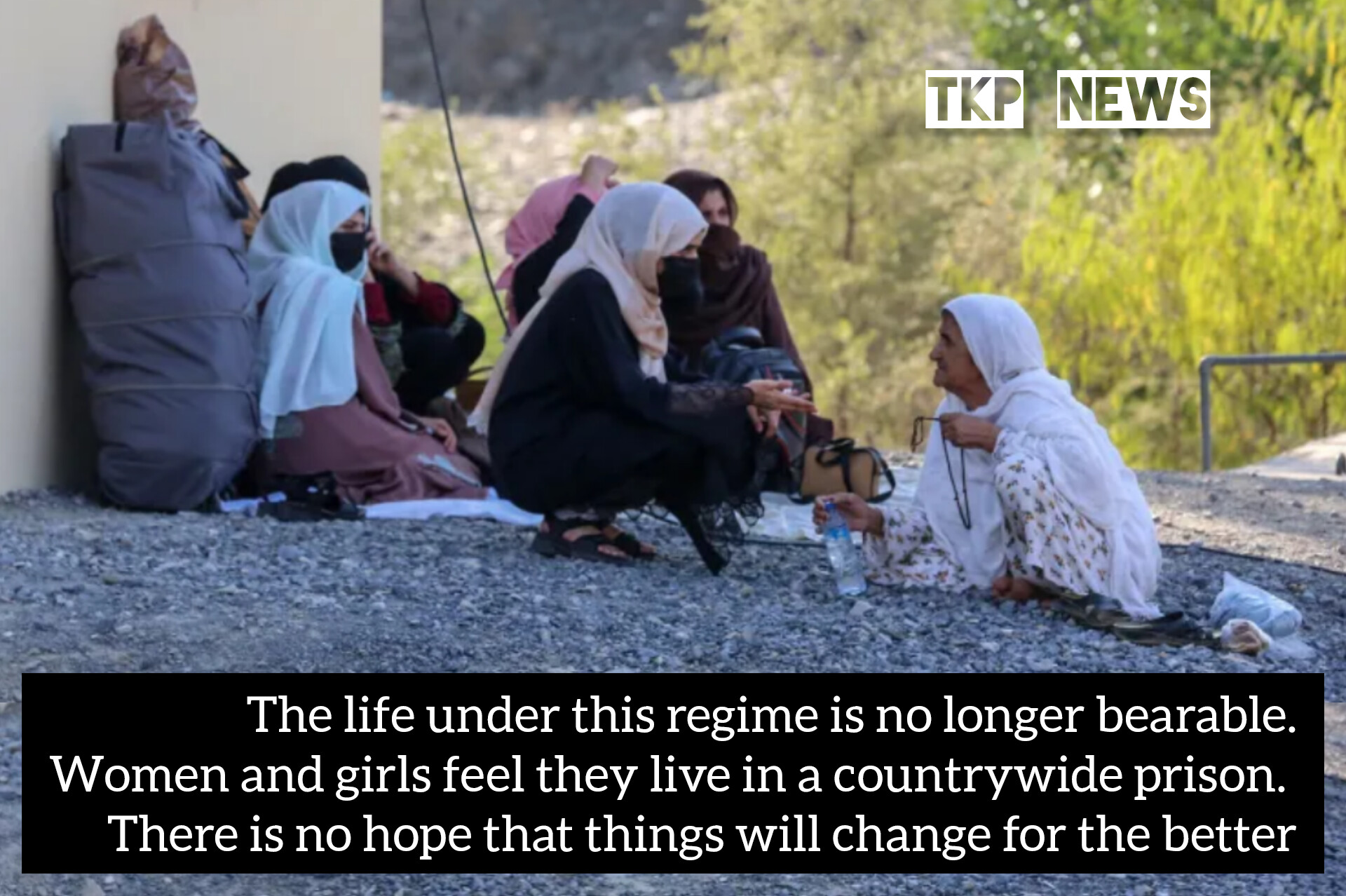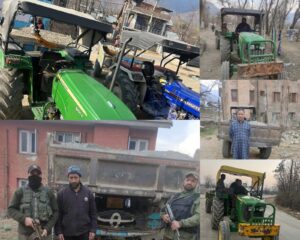
As the world celebrates women’s rights, Afghan women are losing hope they will regain theirs.
- Maryam AhmadiA pseudonym for an Afghan peace and wo
Opinions|Women’s Rights
- Maryam AhmadiA pseudonym for an Afghan peace and women’s
It was 4:15am when I arrived at the gate of the passport office. The weather was cold and it was still dark.
There was already a line of women who had come before me. Some were sleeping under a blanket, others were just sitting or standing. I stood in the line and asked one woman how long she had been waiting for. She told me she and her family members had arrived at 1am.
I could understand why they had come that early. I had heard that it would get very crowded at the passport office and if you do not come early, you would be at the end of the line.
Soon another family joined the line behind me: a mother with three girls. We started chatting. The mother, Zarghona, told me her three daughters could not go to school any more after the Taliban ban on secondary education for girls. The eldest was supposed to be in grade 12, the middle one – in grade 10 and the youngest – in grade seven.
The mother told me that they were trying to leave Afghanistan for another country where her daughters could get an education. She told me that they had initially planned to go to Pakistan but after the Pakistani authorities started to expel Afghan refugees, they decided to go to Iran.
She was a kind and outgoing woman; she even invited me to join her and her daughters under their blanket to stay warm.
As dawn began to break, I started to see the faces of the women who were gathering in the long line. I could see many different women: school teachers and university professors, rich and poor, young and old.
As we waited, it started to rain.
At 8:30am, the passport office employees arrived which immediately triggered a commotion. All of a sudden, the line broke as the women rushed to the gate and the crowd somehow moved me farther away.
I had no word of complaint and did not feel upset with these women. I knew they were desperate and they would do anything to get their passports.
After the initial chaos, the line took shape again and I stood waiting again, although much further from the gate than I had initially been.
As I waited, I started chatting with Fahima, a young widow. She had lost her husband many years ago and had moved with her 14-year-old daughter to live with her mother. Then last year, her mother left with her brother to go live in Iran. Fahima and her daughter could not join them because they did not have any passports and it takes a long time to get these documents.
Having nowhere to go, she had to move in with her sister and her family. She told me she feared being identified as a widow with a young daughter and the two being forced to marry Taliban fighters. On top of that, she felt she was a burden to her sister.
port office and he responded that I needed a burqa in order to enter the building and do the paperwork.
I almost cried. I was wearing a hijab and a mask. Why was that not “modest enough” to do my paperwork? I rushed home where I found out that we did not have any burqas, so my brother went to a relative’s house to borrow one.
I donned the borrowed burqa and rushed to the post office but by the time I arrived, the office was closing and the employees were leaving.
This experience came to my mind, as this year’s International Women’s Day approached. I thought about the desperate women I saw at the passport office and wondered, what do Afghan women have to celebrate on March 8? What is there to stay in Afghanistan for?
Since the Taliban regained power in 2021, they have gradually and systematically discriminated against, humiliated, criminalised and denied women and girls their rights. Half of the Afghan population are women and girls; this means half of the people in the country do not have equal rights. UN experts are calling it “gender apartheid”.
It is very difficult for every Afghan mother and father to watch the suffering of their daughters as they are being deprived of education, an income and a future. It is painful to see their growing trauma and mental health problems as they are removed from society, are no longer able to socialise and are forced be stay at home, out of fear of arrest for “improper hijab” or some other new offense.
The life under this regime is no longer bearable. Women and girls feel they live in a countrywide prison. There is no hope that things will change for the better.
That is why the passport office was crowded and has been crowded for many months now. The women of Afghanistan want to leave because they do not see any future for themselves or for their daughters in this country.
As we mark International Women’s Day, perhaps a pertinent question to ponder is, what happens to a country when its women leave?
The views expressed in this article are the author’s own and do not necessarily reflect Al Jazeera’s editorial stance
This is a opinion based story and this story is also published Al Jazeera and edit and checked by Al Jazeera ‘s Editorial Stance

A pseudonym for an Afghan peace and women’s activist
Maryam Ahmadi is a peace and women’s activist based in Afghanistan. She is writing under a pseudonym for security reasons.





